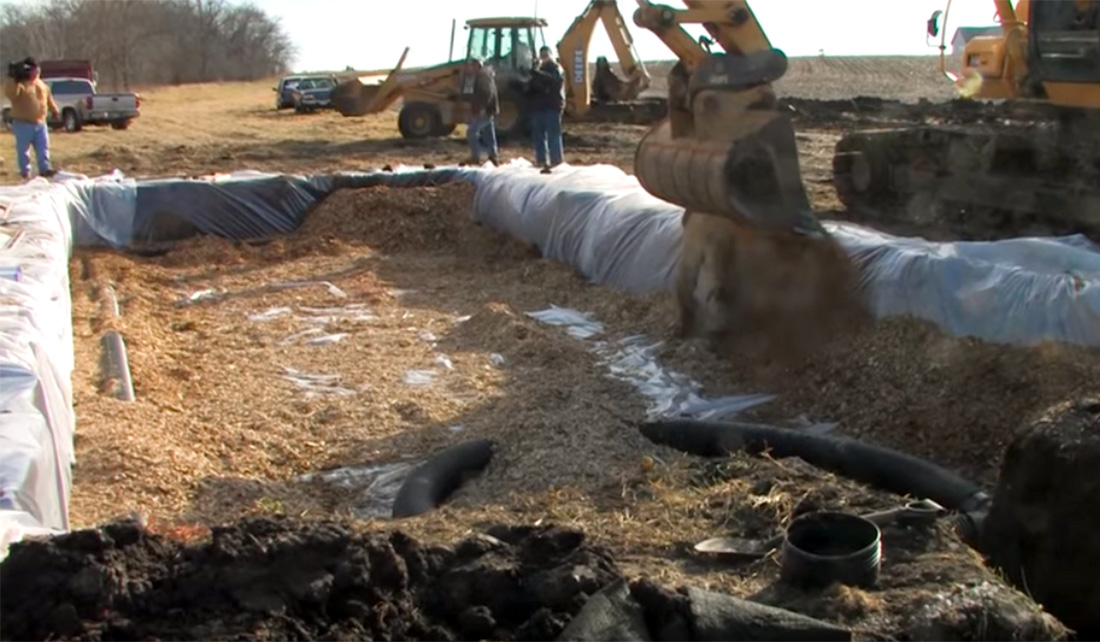
Dig it and forget it—that’s one of the biggest appeals of woodchip bioreactors, one of many nitrogen-reducing practices recommended in the Illinois Nutrient Loss Reduction Strategy.
The bacteria living in these long, narrow trenches remove nitrogen carried through farm tile lines through a process known as denitrificaiton. The result is an average annual nitrogen reduction of 25 percent for roughly 10 years—and with minimal maintenance for the farmer.
But don’t just take our word for it. Hear what University of Illinois researchers Mark David and Laura Christianson had to say about this conservation agriculture practice this video.

